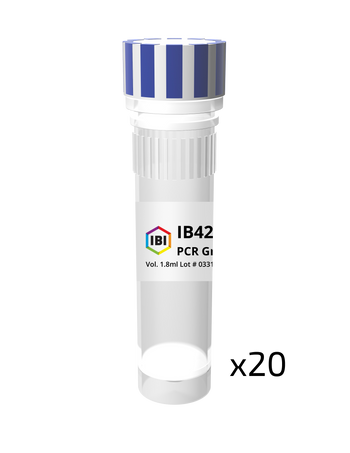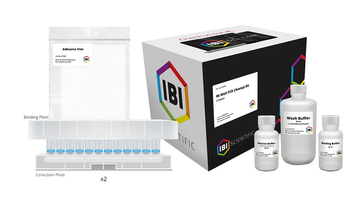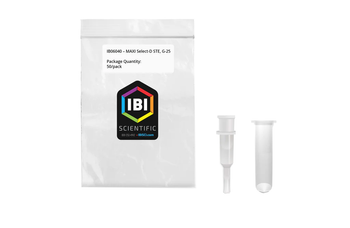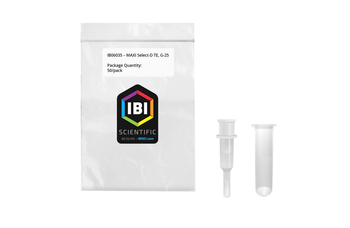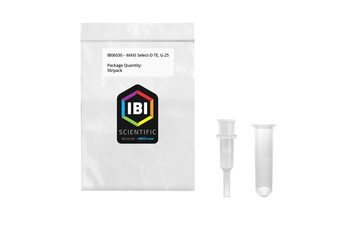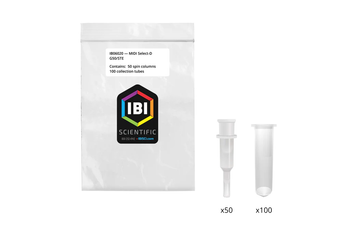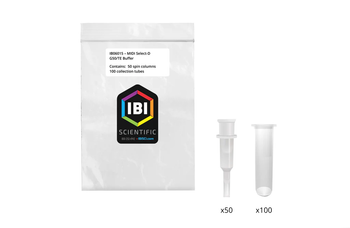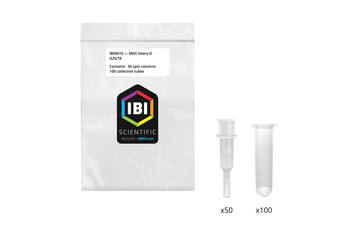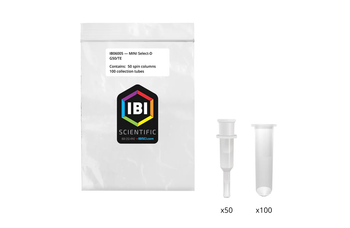PCR Reagents

Polymerase chain reaction, or PCR, is a core molecular biology method. Many labs rely heavily on the results of PCR as inputs for subsequent experiments. That makes it essential to maintain the highest possible level of data quality and integrity. Learn about our full line of PCR kits and reagents to ensure the success of your scientific experiments.
Types of PCR
PCR is a molecular tool that amplifies small segments of DNA or RNA. The technique relies on using synthetic primers that bind to the target genomic sequence. Then, a thermostable DNA polymerase called a Taq polymerase extends the sequence. The sequence is amplified during repeated cycles of denaturation of the template DNA, primer annealing to the target sequence, and extension of the primers. After 25 to 40 cycles, levels of the target DNA or RNA sequence increases by a factor of 10^7. PCR tests yield amplified DNA or RNA that can be verified and used in subsequent experiments.
Since its development;in 1983, the use of PCR has expanded to include multiple related procedures:
- Reverse transcription PCR. Reverse transcription, or RT PCR, allows the use of RNA as a template. RNA is reverse transcribed into complementary DNA during this procedure.
- Quantitative PCR. Quantitative PCR, also known as qPCR or real time PCR, is a technique that allows an experimenter to monitor the progression of a PCR reaction over time. By quantifying the levels of a fluorescent reporter molecule as the reaction progresses, qPCR assays allow accurate quantification of PCR products.
- Nested PCR. Nested PCR uses two types of primers and two successive reactions, increasing the sensitivity and specificity of the procedure.
- Multiplex PCR. Traditional PCR allows for the amplification of just one target sequence. In contrast, multiplex PCR allows an experimenter to amplify multiple sequences at once by using a mix of several primer pairs.
Essential PCR Kits and Reagents
When choosing PCR kits for your laboratory, look carefully at the technical specifications to ensure the PCR tests meet your needs. PCR mastermix;solutions increase fidelity of experiments, but they vary by manufacturer. Consider the following factors:
- Activation time. A fast activation time promotes the efficiency and accuracy of PCR tests. Our PCR kits offer activation times of as little of 2 minutes.
- Reagent purity. The purity of PCR reagents is a large factor in the success of PCR kits. As an ISO 9001:2015 certified manufacturer of Life Science Research Products, IBI Scientific has met stringent criteria for reagent quality. For example, our PCR;water includes purification through continuous deionization, reverse osmosis, 0.1 𝞵m filtration, UV treatment, and steam sterilization.
- Environmental safety. The reagents used in traditional PCR posed environmental safety concerns. Our KleenGreen dye, used in qPCR kits, is non-mutagenic, non-cytotoxic, and cell membrane impermeable, making it safer for laboratory use.
- Suppression of non-specific amplification. Amplification of unwanted DNA sequences can be a challenge in PCR experiments. Our proprietary Taq HotStart DNA Polymerase is chemically modified to promote fast activation time, excellent stability, high replication, and specificity of amplification.
- Kits versus individual reagents. Some laboratories prefer to use all-in-one PCR mastermix kits that contain all necessary PCR reagents, whereas others like to purchase reagents for PCR separately. For example, we offer a premixed ultra pure deoxynucleotide solution that contains the nucleotides needed to improve yield and amplification sensitivity for PCR.
- Scalability. Whether you run a few PCR reactions or many, it is important to order the appropriate amount of materials to use before they expire. Note the scalability of PCR kits to ensure they meet the throughput needs of your lab. IBI Scientific offers kits with anywhere from 10 to 1,000 reactions.
Our full line of reagents for PCR;gives you the highest quality materials. Contact us today to place an order.


